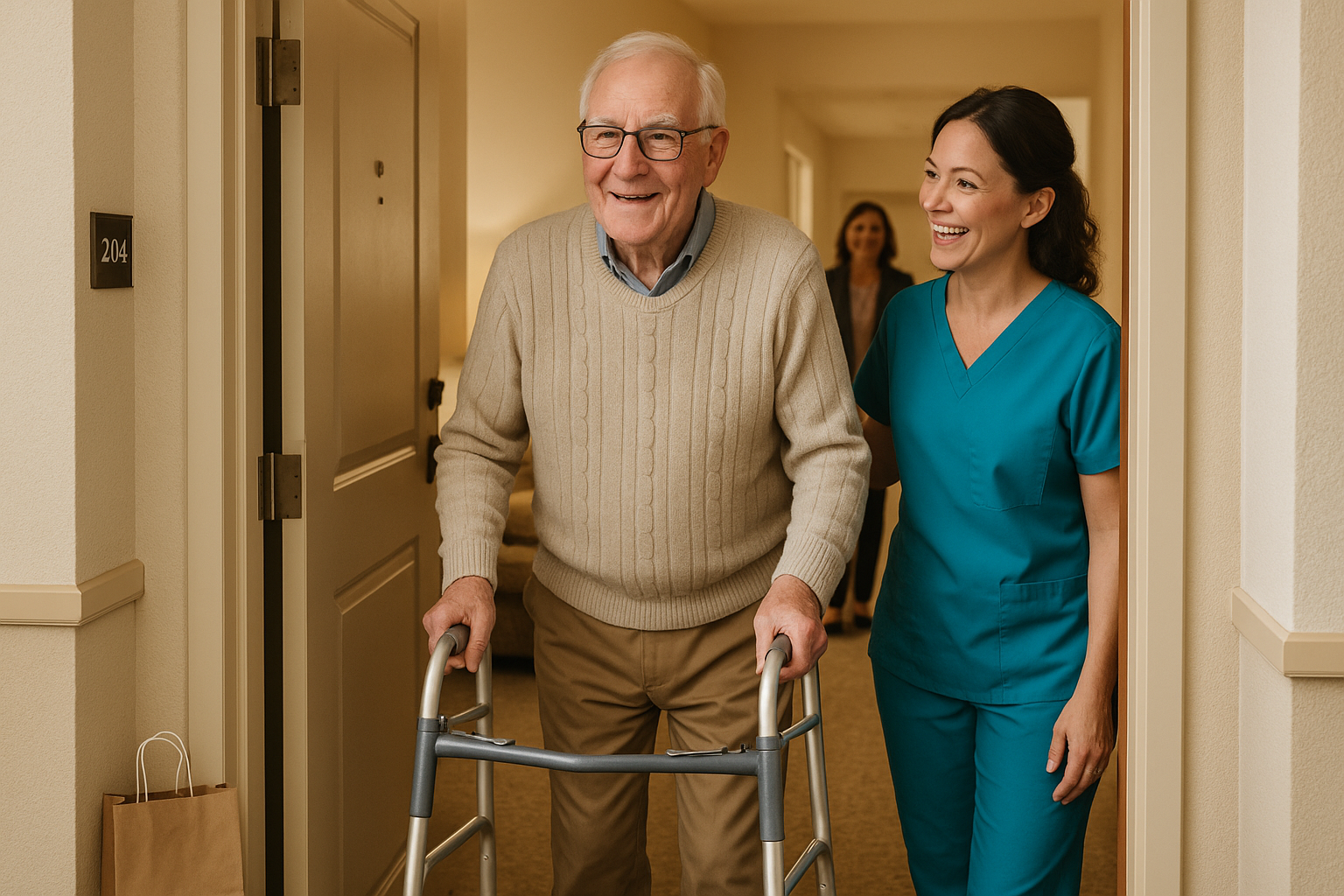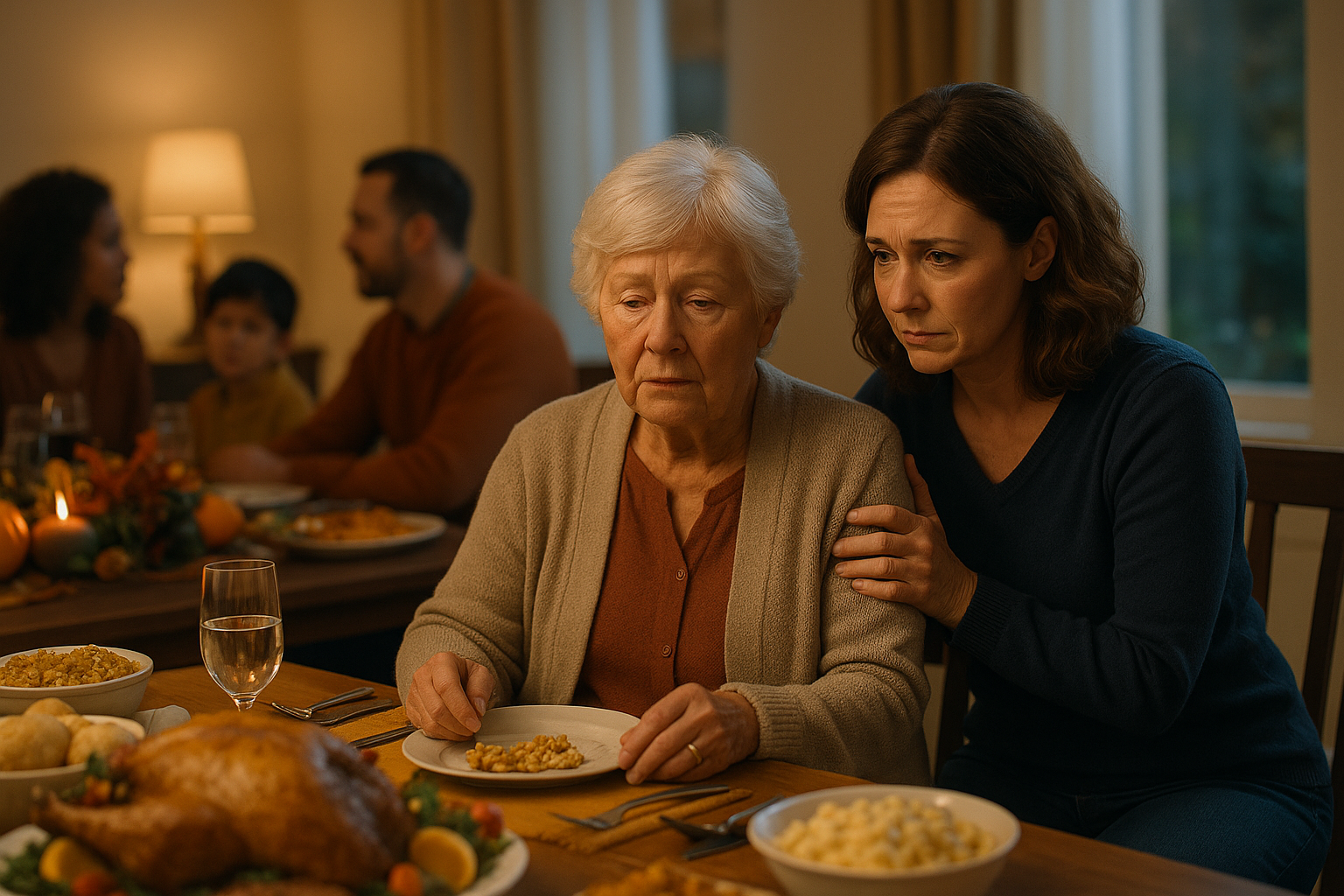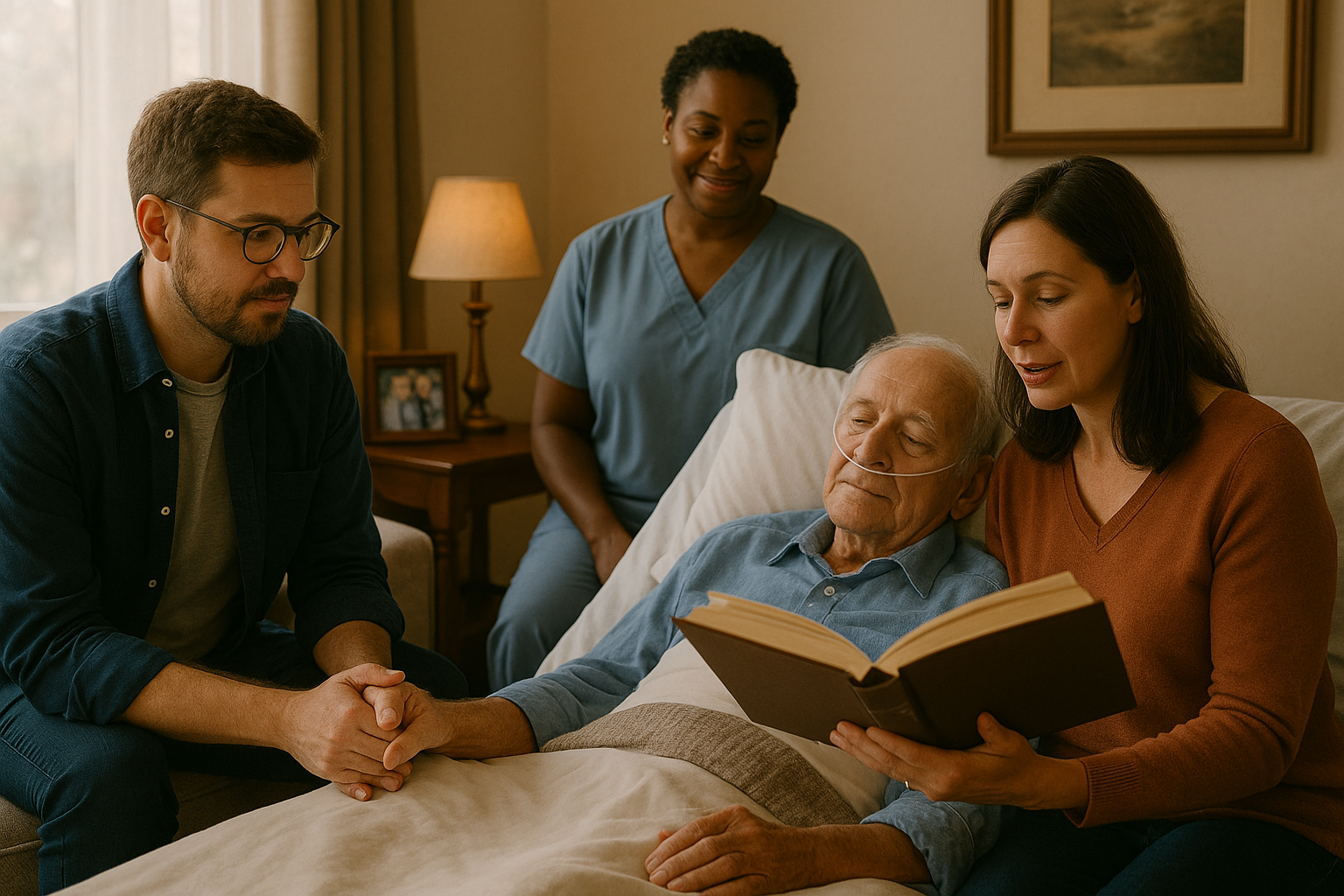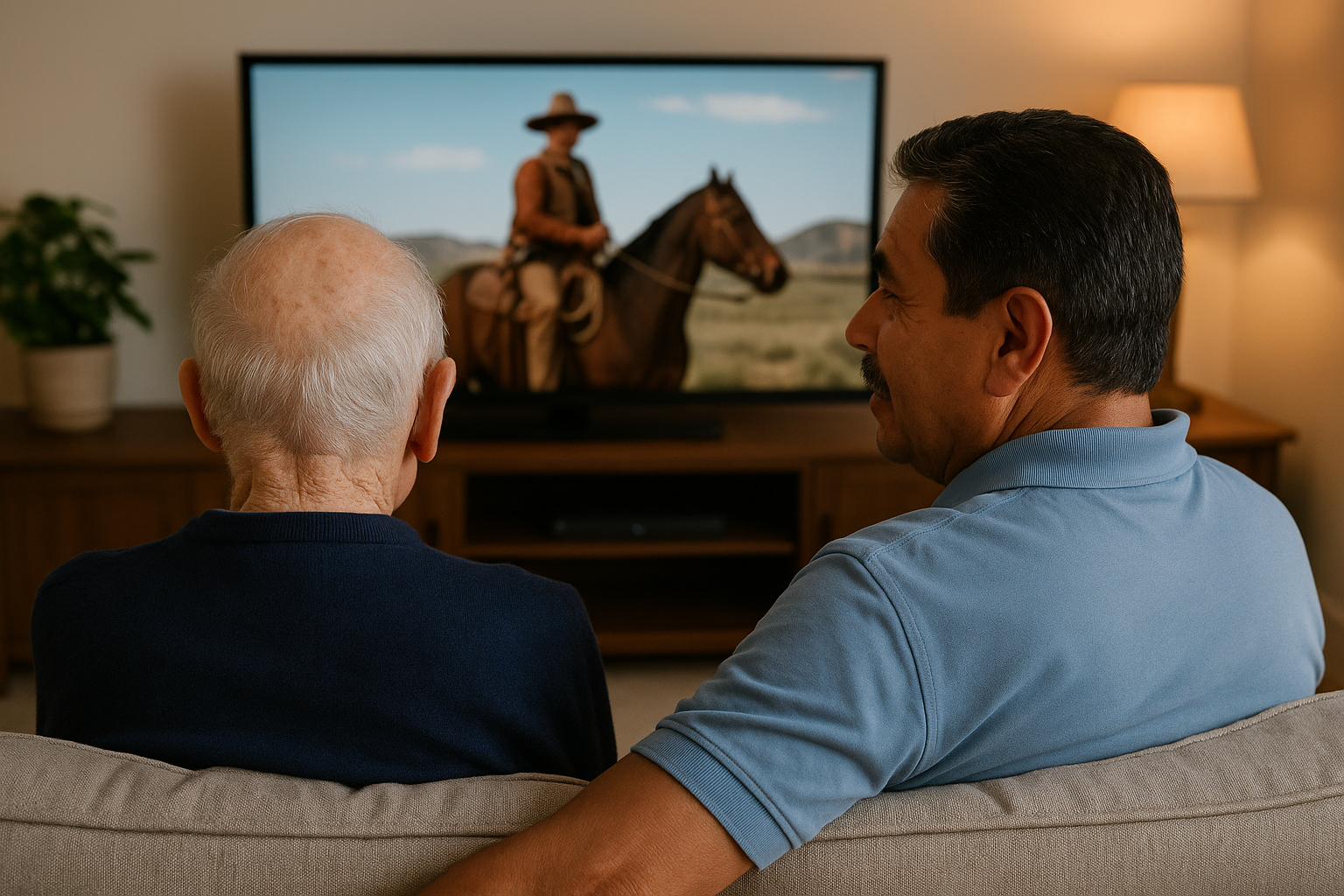When You Can't Be There: Signs Your Parent Needs Help (And You're 1,000 Miles Away)
The phone call no adult child wants to receive - and the warning signs you can spot from across the country
The call came on a Tuesday.
"Mrs. Johnson? This is Lisa from Sunrise Manor. We need to talk about your mother."
Sarah felt her stomach drop. She'd talked to Mom just Sunday. Everything seemed fine. Mom sounded good - chatty, asking about the grandkids, complaining about the food as usual.
"What's wrong?"
"I wanted to reach out because we've noticed your mother could use some extra support. She's been having trouble keeping track of her medications, and yesterday she seemed confused trying to find her way back from the dining room. We care about her so much, and we want to make sure she's safe and comfortable here. Maybe we could talk about some additional care options to help her? Otherwise, we might need to look at a community that can provide more hands-on assistance."
Sarah stared out her Chicago office window, 1,200 miles from her mother's Denver assisted living community.
How did I miss this?
When "Fine" Doesn't Mean Fine
You call every week. Sometimes twice.
"How are you doing, Mom?"
"Oh, I'm fine, honey. Don't worry about me."
And from 1,000 miles away, she sounds fine. Her voice is familiar. She remembers to ask about your job, your spouse, the kids. She sounds like Mom.
But here's what you can't see through the phone:
The conversation that used to flow for thirty minutes now ends after ten because she can't think of what to say next.
The medication organizer that used to be empty by Sunday is still half-full by Tuesday, and forgotten doses are piling up.
The confusion in her eyes when she can't find her apartment after lunch.
The fear she won't admit - that she's losing herself and doesn't want to burden you.
The Call That Changes Everything
At Atlee Home Care, we get calls from adult children across the country who've just received "the call" from their parents' facility.
Independent Living: "Your father needs help with daily tasks, but our community cannot provide that care in Independent Living."
Assisted Living: "Your mother's needs have increased beyond what our staff can manage."
Memory Care: "Your dad needs one-on-one attention to help with daily routines and safety."
The message is always the same: Get help now, or your parent has to move.
And suddenly, from your home in Seattle or Dallas or Chicago, you're trying to navigate Denver care options for a parent who insisted they were "fine" just days ago.
Warning Signs You Can Spot From Far Away
The truth is, there are signs - you just have to know what to listen for during those weekly phone calls.
Changes in Conversation:
- Calls are getting shorter without an obvious reason
- Repeating the same stories or questions within the same conversation
- Difficulty following topics they used to engage with easily
- Less interest in family updates or current events
Facility-Specific Red Flags:
- Missing scheduled facility activities they used to enjoy
- Complaints from staff about missed meals or medication reminders
- Comments about "getting lost" in a place they've lived for months or years
- Increased mentions of feeling "tired" or "confused"
The Subtle Shifts:
- Phone calls at unusual times because they forgot your time zone
- Difficulty managing technology they used to handle fine
- Forgetting recent family events but remembering old stories perfectly
- Increased anxiety about routine tasks
When Facilities Reach Their Care Limits
Here's what many families don't realize: senior living communities - even excellent ones - have limits on the individual attention they can provide.
Independent Living offers community and basic services, but residents need to manage their own daily care.
Assisted Living provides help with some daily tasks, but staff members care for many residents and can't offer one-on-one attention throughout the day.
Memory Care specializes in dementia care, but even these communities may recommend additional support when residents need constant companionship or specialized attention.
That's when facilities make "the call."
It's not because they don't care. It's because your parent's needs have grown beyond what the community can safely provide without additional help.
What That Phone Call Really Means
When the facility calls to say your parent needs extra help, they're not giving up on your mom or dad.
They're recognizing that your parent deserves more attention, safety, and companionship than the facility's team can provide.
They're saying: Your parent needs someone whose primary focus is just them.
The Denver Advantage: Adding Care Without Moving
Here's the good news: in most cases, your parent doesn't have to leave their community.
Professional in-home caregivers can work directly in senior living facilities, providing the one-on-one attention your parent needs while they stay in the place they've come to call home.
This means:
- Keeping the friends and routines they've established
- Maintaining the security of a managed community
- Adding the personal attention they need without the trauma of another move
- Giving you peace of mind from 1,000 miles away
What Professional Care Looks Like in Senior Living
When families choose to add professional caregivers to their parent's assisted living, independent living, or memory care situation, it transforms the experience:
- Medication Reminders: Someone who ensures medications are taken properly and on time - providing gentle reminders every time.
- Safety Monitoring: A professional who notices when confusion or mobility issues create safety concerns.
- Companionship: Regular, meaningful interaction that goes beyond facility staff's brief check-ins.
- Family Communication: Regular updates about how your parent is really doing - not just the weekly "I'm fine."
- Activity Engagement: Someone to encourage and accompany your parent to facility activities and social opportunities.
The Relief of Professional Eyes and Hands
When you can't be there to see the subtle changes, professional caregivers become your eyes and hands.
They notice when your parent forgets their afternoon medication reminder.
They see when walking to the dining room becomes more difficult.
They recognize when social withdrawal might signal depression or cognitive changes.
And they communicate these observations to you - so you're never blindsided by a facility's phone call again.
From Crisis to Confidence
That Tuesday phone call doesn't have to be the beginning of a crisis.
It can be the moment when your parent gets the individualized attention they deserve, when you get the peace of mind you need, and when everyone can move forward with confidence instead of fear.
Your parent gets to stay in their chosen community with enhanced safety and companionship.
You get regular, honest updates about how they're really doing.
And the facility staff can focus on community programming and services, knowing your parent has dedicated support.
You're Not Alone in This
Managing a parent's care from far away is one of the hardest challenges adult children face.
The guilt of not being there. The fear of missing something important. The overwhelming responsibility of making care decisions from across the country.
But you don't have to navigate this alone.
Professional caregivers who specialize in senior living communities understand both your parent's needs and your concerns as a long-distance family member.
When the Next Call Comes
The next time your parent's facility calls, it doesn't have to be about moving your parent somewhere else.
It can be about adding the right support so your parent can age comfortably and safely right where they are.
And when you call your parent next Sunday, you might hear something different in their voice:
Confidence instead of confusion.
Engagement instead of withdrawal.
The sound of someone who's getting exactly the care they need, exactly where they want to be.
📞 Call Atlee Home Care: (720) 740-0380
🌐 www.atleecare.com
Serving Denver area senior living communities with professional, compassionate care that helps families stay connected across any distance.
At Atlee Home Care, we specialize in providing professional caregivers who work within Denver's senior living facilities - independent living, assisted living, and memory care communities. Our experienced caregivers help bridge the gap between facility care and the individual attention your parent needs, giving long-distance families peace of mind and helping seniors thrive in their chosen communities.











